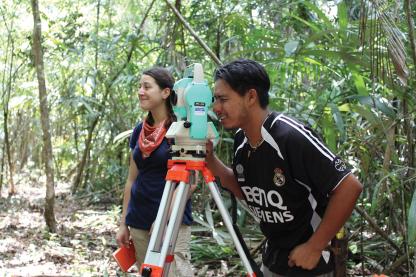Archaeology

Archaeology studies past and present cultures and cultural heritage preservation by unearthing, documenting, and analyzing materials.
Archaeologists study the things that people leave behind, including artifacts such as tools and vessels, features such as hearths and buildings, and ecofacts such as animal bones and even tiny remnants of pollen. Think of the items in your own home that may still be around in a few hundred or even thousands of years! Archaeologists study material remains in context, and use that information to ascertain things about the culture that left them behind. What kind of food did they eat? What kind of tools did they make, and how did they make them? What sort of structures did they build? What did their artwork and symbols mean? Archaeologists study the material remains of cultures from millions of years ago to the recent past.
Courses in Archaeology
- ANTH 105: Archaeology & World Prehistory
- ANTH 307: World Heritage & Archaeology
- ANTH 350: Method & Theory in Archaeology
- ANTH 351: Artifact Analysis
- ANTH 352: Experimental Archaeology
- ANTH 354/654: Cultural Resources Management
- ANTH 357: Field Archaeology
- ANTH 358: Archaeology Lab
- ANTH 359: Special Topics in Archaeology
- ANTH 394: Archaeology of North America Regions
- ANTH 395: Mesoamerican Archaeology
- ANTH 559: Variable Topics in Archaeology
- See the catalog for course descriptions
